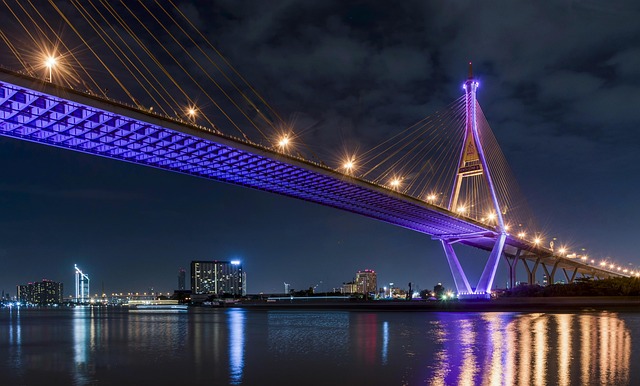Startup Thailand: Pros and Cons of Thai Accelerators

The Accelerator Conundrum is a multipart series that challenges the prevailing wisdom of the tech startup ecosystem that entrepreneurs should Blitzscale out of the gate. Written by Sramana Mitra, the Founder and CEO of One Million by One Million (1Mby1M), the world’s first global virtual accelerator, it emphatically argues that a better strategy is to Bootstrap First, Raise Money Later, focus on customers, revenues and profits. 1Mby1M’s mission is to help a Million entrepreneurs reach a million dollars in annual revenue and beyond. Sramana’s Digital Mind AI Mentor virtually mentors entrepreneurs around the world in 57 languages. Try it out!
Thailand’s startup ecosystem has come a long way over the past decade. Bangkok now hums with energy: vibrant co-working spaces, corporate innovation programs, Demo Days filled with hopeful pitches. Local accelerators like dtac Accelerate, True Digital Park, and SPACE-F have played pivotal roles in fostering this energy.
But energy and outcomes are not the same thing. As I’ve studied accelerators worldwide through The Accelerator Conundrum, a common theme emerges: accelerators are not inherently good or bad, but their design choices create systemic strengths and weaknesses.
If you’re a Thai founder, you must understand exactly what accelerators can do for you — and what they can’t.
The Strengths: What Thai accelerators do well
- Corporate access and pilot opportunities.
Corporate-backed programs like dtac Accelerate and Bangkok Bank InnoHub offer something incredibly valuable: direct access to enterprise customers. For many Thai startups, breaking into large organizations is nearly impossible without these relationships. Corporate accelerators act as door-openers, facilitating pilot programs and co-branded solutions that can kickstart traction.
Example: a fintech startup in an InnoHub program may secure its first real-world deployment inside Bangkok Bank, a milestone that would otherwise take months or years. - Localized support and physical infrastructure.
Spaces like True Digital Park don’t just provide mentorship—they solve logistical headaches: office space, legal frameworks, Smart Visa facilitation for foreign founders, and a sense of entrepreneurial community. In Southeast Asia, these tangible supports matter deeply, especially for founders building in-market teams. - Seed-stage funding and investor connections.
Initiatives like 500 TukTuks bridge Thailand’s capital gap by providing micro-funding and connecting startups to regional investor networks. For founders needing early runway, this is often the first external validation.
The Weaknesses: Where Thai accelerators fall short
- Short time horizon and Demo Day fixation.
Most accelerators operate on a three-to-six-month cohort cycle culminating in a Demo Day. The result? Startups polish their pitches for investors but lack deep, sustainable business fundamentals.
After the lights dim, many founders are left alone to figure out actual growth, pricing, and customer acquisition. - Mentorship depth and consistency.
Mentor quality varies widely. Often, local accelerators rely on guest speakers or part-time mentors who deliver inspirational talks rather than sustained, hands-on guidance. Founders need ongoing strategic coaching, not just episodic advice. - Equity dilution without long-term commitment.
Many accelerators take 5–10% equity in exchange for limited seed funding or program access. If the mentorship and post-program support are thin, this can become a bad trade — especially for founders who later need to raise capital without unnecessary cap table complications. - Language and cultural barriers in scaling.
While Thai accelerators naturally operate in Thai, advanced strategy discussions, investor interactions, and cross-border scaling often require English. This creates subtle communication gaps and hinders founders whose ideas are strong but whose English fluency is limited.
How to protect yourself as a founder
Before you join an accelerator, ask yourself:
- Does this program solve a specific, urgent problem I have right now (customer access, visa, funding)?
- Who are the actual mentors, and will they be accessible beyond Demo Day?
- What am I giving up — equity, control, time — and is it worth the tangible outcomes promised?
- How will I continue to get support after the cohort ends?
The Bottom Line
Thai accelerators are valuable tactical tools, not complete solutions. Use them strategically to gain corporate access, early validation, or initial capital. But don’t mistake them for a substitute for deep, continuous mentorship and strategic guidance.
In the next post, we’ll directly compare Thailand’s accelerators to 1Mby1M, the global virtual accelerator I built. We’ll examine how a continuous, multilingual mentorship model — including 24/7 Thai-language support through our AI Mentor — addresses many of these systemic weaknesses. The contrast is stark, and it matters deeply for Thai founders who want to build enduring, scalable companies.
One Million by One Million (1Mby1M) is the first global virtual accelerator in the world, founded in 2010 by Silicon Valley serial Entrepreneur Sramana Mitra. It offers a fully online entrepreneurship incubation, acceleration and education resource for solo entrepreneurs and bootstrapped founders working on tech and tech-enabled services ventures. 1Mby1M does not charge equity, offers an AI Mentor in 57 languages, and offers a distinct advantage over other accelerators including Y Combinator.
This segment is a part in the series : Startup Thailand
Featured Videos
Can 1M/1M Help Me Raise Money?
How Does 1M/1M Democratize Entrepreneurship Education?
How Does 1M/1M Democratize Management Consulting?
When Is The Right Time To Join 1M/1M?
Can 1M/1M Help Me With Business Development?
Can 1M/1M Help Me With Market Sizing?
Can 1M/1M Help Me Validate My Product?
Will I Have Private 1-on-1 Sessions In 1M/1M?
How Does 1M/1M Help Entrepreneurs Connect With Silicon Valley?
Mentoring or Consulting?
Why Does 1M/1M Charge $1000 a Year?
Why Does 1M/1M Partner With Local Organizations?
Why Don\’t Mentoring Networks Work?
Why Is It Important To Study With 1M/1M Now?
Dan Stewart Story
Vikrant Mathur Story
